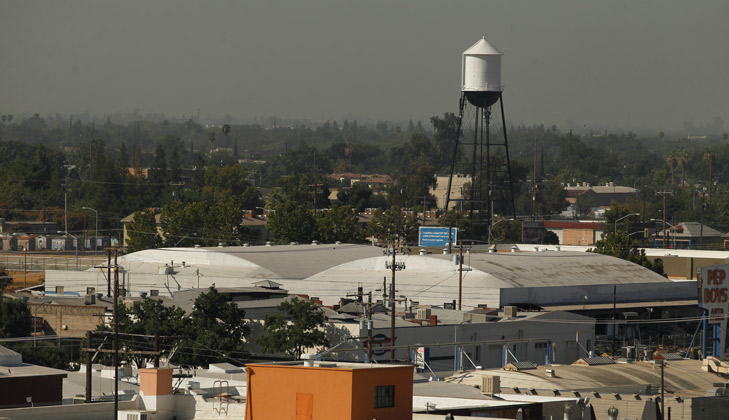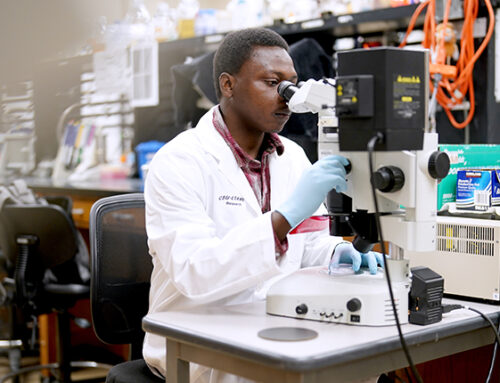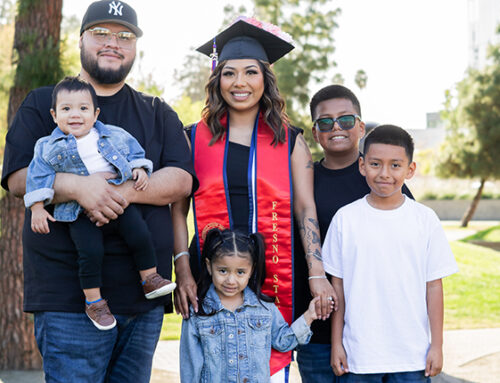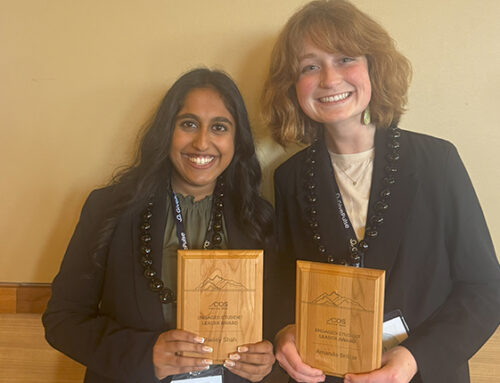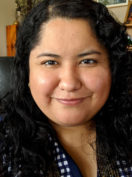
Dr. Tania Pacheco-Werner
As Dr. Tania Pacheco-Werner drives through her Sanger neighborhood, the rich agriculture of the Central Valley surrounds her sight, invigorates her childhood memories and brings a peaceful smile to her face. After all, the Valley is her beloved home and it’s the place she advocates for each day in her role as co-assistant director of the Central Valley Health Policy Institute at Fresno State.
She can now add a new title after her name as a member of the governing board for the San Joaquin Valley Air Pollution Control District — an appointment announced on July 28 by California Gov. Gavin Newsom. Pacheco-Werner joins 14 other members of the board in working to reduce air pollution in the San Joaquin Valley’s eight counties. She is one of two members appointed by the governor and is not an elected official.
For Pacheco-Werner, a Latina immigrant from Mexico City, the opportunity to serve the Valley is deeply rooted.
“I came to this country as a child and learned English as a second language,” Pacheco-Werner said. “Due to my immigration status growing up, I got a lot of messages that I did not belong here, nor could [I] be a productive member of our society. It’s amazing to me now to be in a place where the governor of our state can call upon me to represent the interests of the people through my health policy and scientific knowledge.”
Pacheco-Werner is quick to credit the many people and mentors she encountered along the way — people who she says ultimately helped her find her place in the community.
In her new role on the board, Pacheco-Werner, will work specifically to seek information about the status of different polluting sources in agricultural and industrial facilities and assess their impact. She will also make recommendations on local plans for controlling those polluting sources in the region, which spans from Stockton to Bakersfield.
This work is nothing new for Pacheco-Werner, who has been researching health equity through her work at the Central Valley Health Policy Institute since 2015. Alongside other research scientists, Pacheco-Werner has examined the relationship between neighborhood pollution and hospitalizations or emergency visits, as well as the lingering health effects of pollution on different populations in the Valley. Her latest research and publications focused on the effects of air pollution on birth outcomes resulting in preterm birth — a topic close to Pacheco-Werner.
“One of the reasons I became more passionate about clean air is because when I was pregnant I lacked safe places to walk,” Pacheco-Werner said. “I needed to walk in order to have a healthy baby and to maintain my own health, but the air quality was so poor my husband and I had to drive to the nearest grocery store to walk the aisles in order to get my physical activity in.”
Pacheco-Werner said this experience gave her a glimpse into the health challenges many minorities and underserved communities face, especially in the Valley. It ignited her advocacy in health equity and she hopes to bring that same passion to the board.
“As a person with asthma, whose husband has asthma and whose toddler has asthma, my family and I live every day with the policy decisions that are being made in regards to air quality controls,” Pacheco-Werner said. “In addition, my entire family have been farmworkers in the Central Valley, which has made me not only have a lifelong appreciation for the land, but also knowledge of the importance of agriculture as an economic driver.”
Pacheco-Werner earned her bachelor’s degree in sociology from Fresno State and a doctorate in sociology from University of California, San Francisco. She served as a lecturer in Fresno State’s departments of Sociology and Women’s Studies between 2011 to 2017, before her current position as co-assistant director of the Central Valley Health Policy Institute. In addition, Pacheco-Werner is a member of the American Public Health Association’s Latino Caucus for Public Health.
For Pacheco-Werner, whose appointment is currently seeking confirmation by the Senate Rules Committee of the California State Legislature, she knows there is much to be done in the fight for cleaner air.
“In my role, I hope to support the work that is already happening to improve our air quality and to support innovation that helps us progress in our fight for cleaner air for everyone, regardless of where they live, how much income they have or their racial/ethnic background,” Pacheco-Werner said. “I would like to bring both science and community voices to the table, because more often than not, science ends up discovering what communities have known all along through lived experience — they just didn’t have the data.”

